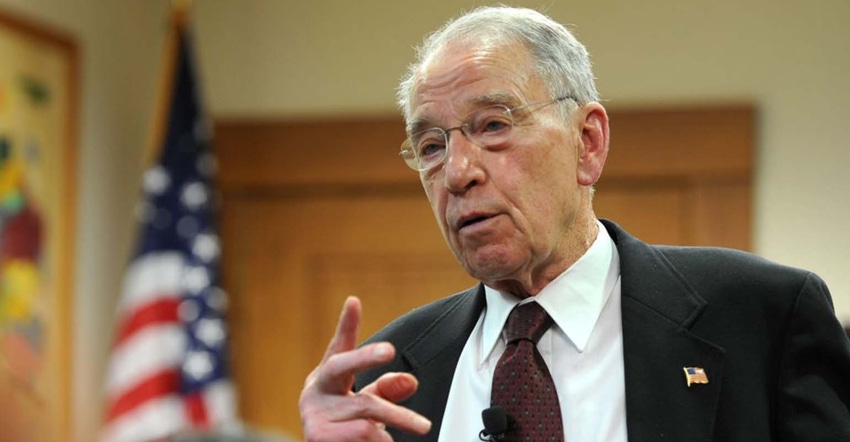Senators launch investigation into conservation tax benefit abuse
Probe will shine light on transactions that disguise profitable tax shelter as charitable donation.

Senate Finance Committee chairman Chuck Grassley (R., Iowa) and ranking member Ron Wyden (D., Ore.) launched an investigation into the potential abuse of syndicated conservation easement transactions, which may have allowed some taxpayers to profit from gaming the tax code and deprived the federal government of billions of dollars in revenue.
For several years now, the Internal Revenue Service has been investigating these transactions. They appear to involve promoters selling interests in tracts of land to taxpayers looking for large tax deductions, the senators. In such an arrangement, the taxpayers then get inflated appraisals of those tracts of land and grant conservation easements on that land. The resulting inflated charitable deductions are then split among the taxpayers.
“There are very legitimate purposes for the conservation easement provisions of the tax code, but when a handful of individuals cook up a scheme to cash in at the expense of federal revenue and in violation of Congress’s intent, something needs to change. There’s no reason that the rest of the taxpaying American public should be left with such a raw deal,” Grassley said. “This is just our first step in getting to the bottom of how these tax provisions are being abused, and it will inform what else ought to be done to fix the problem.”
Wyden said, “Our first concern is preserving the integrity of the conservation easement program, which has helped protect critical habitat across the country. The goal of our bipartisan investigation is to ensure a few bad actors don’t threaten the program by selling off deductions based on exorbitant appraisals. The program must not be abused and used as a lucrative tax shelter for the wealthy.”
Groups of taxpayers appear to have used and continue to use syndicated conservation easements to reap tax benefits greater than their initial investments. These groups of investors will pool resources to buy land and grant conservation easements on it to prevent development. With very little oversight, many of these groups receive extravagantly high appraisals for that land, boosting their tax benefits.
The Brookings Institution found that this practice cost the federal government more than $3 billion in 2014 alone and estimated that it has cost even more in the years since then.
In 14 separate letters, Grassley and Wyden sought documents and information from individuals who appear to be associated with these investor groups that might have unfairly profited from conservation easements. The senators are seeking information about the organization, tax code compliance and promotion of the groups from these individuals.
The Land Trust Alliance and its 1,000 member-land trusts welcomed the timely probe of conservation tax benefit abuse. Andrew Bowman, president and chief executive officer of the Land Trust Alliance, said it is the “right step toward permanently ending this abuse. It shines a bright light on transactions that disguise a profitable tax shelter as a charitable donation.”
The alliance noted that only a handful of the more than 2,000 conservation easements completed annually are the work of bad actors abusing the system, “but these actors must be stopped,” Bowman said.
The alliance also said it has endorsed the Charitable Conservation Easement Program Integrity Act. “It allows honest conservation donations to move ahead, unimpeded. It preserves the good reputation of our nation’s land appraisers and conservationists. It stops bad actors from profiting. It safeguards taxpayers, and it provides Congress a concise and sensible solution that’s ready for passage,” Bowman added.
About the Author(s)
You May Also Like





